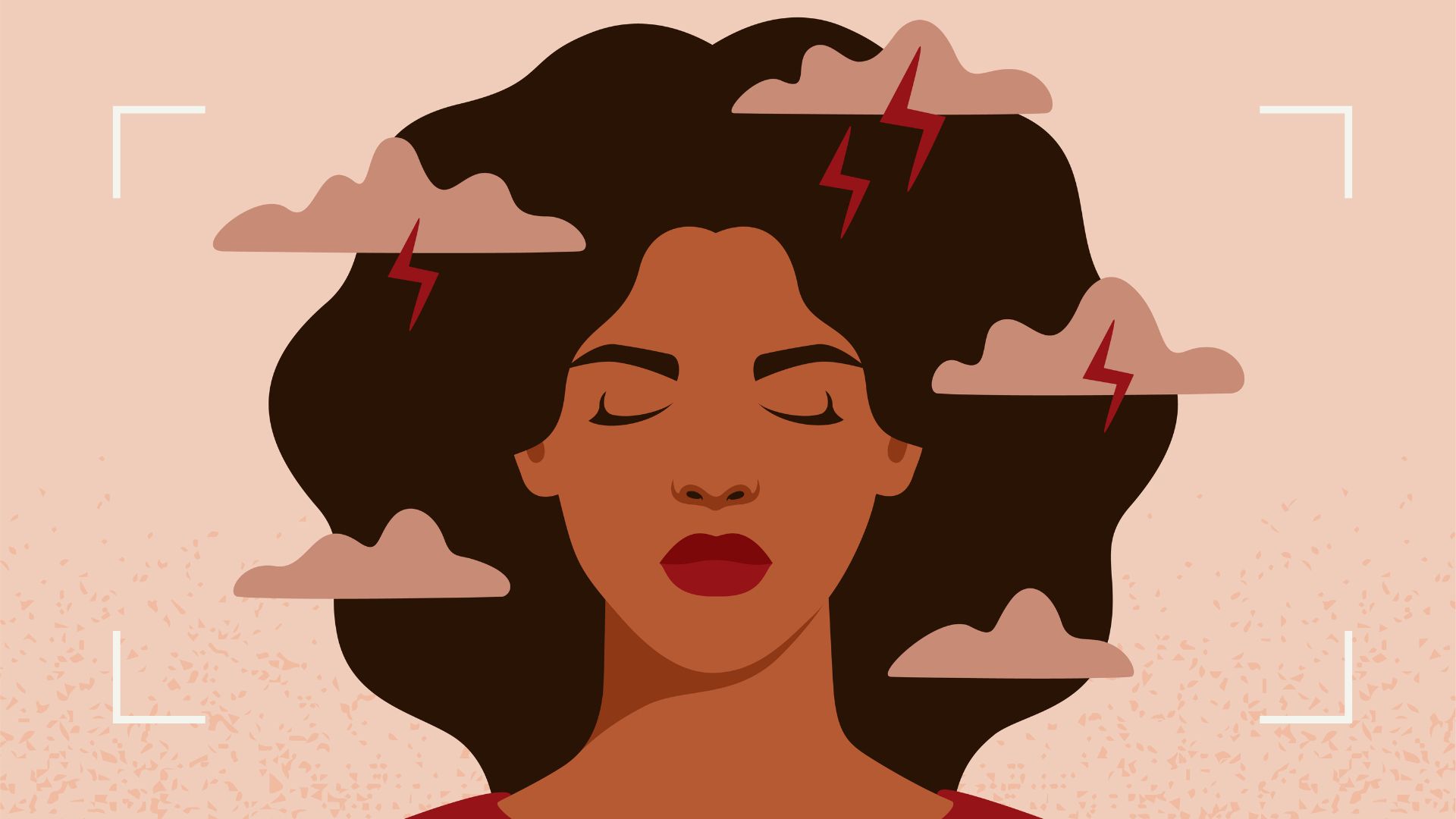What is habitual burnout? Plus, how to spot the symptoms of severe stress
You may be suffering from habitual burnout if stress seems to be a permanent fixture of your daily life


The pressures of everyday life are often unavoidable, but habitual burnout is when we’re operating in a constant high-stress state and we find ourselves battling constant exhaustion.
Habitual burnout is a severe form of burnout, caused by anything that elevates our stress levels for an extended period – from emotional demands that we feel unable to meet to constant physical exertion on our bodies. It often manifests with signs of high cortisol in women. Burnout is more than just a stressful week though, it’s an emotional and physical condition that can be detrimental to our wellbeing, so it’s important to take it seriously.
If you’re wondering how to recover from burnout, our experts are on hand to explain the symptoms of habitual burnout, the steps you can take to mitigate stress in your life and help you along the road to recovery.
Habitual burnout symptoms
The symptoms of burnout may feel unusual and set alarm bells ringing, says Dr Nicky Payne, a health psychologist and associate professor of psychology at Middlesex University, but habitual burnout is a step above. "Symptoms become so pervasive in your life that you cannot distinguish it from normal life, resulting in, for example, depression, and anxiety," she says.
Symptoms of habitual burnout include:
- Feelings of numbness, cynicism and indifference
- Chronic mental and physical fatigue, similar to emotional burnout
- Depression
- Neglecting personal needs, such as hygiene and adequate nutrition
- Escapist behaviors, such as drinking or smoking
- Sleep issues such as insomnia
What causes habitual burnout?
Workplace burnout is the most commonly known cause of habitual burnout, but parenting, relationship burnout, and even exercise burnout are all recognized causes of the condition.
“Burnout is thought to develop in a series of stages,” says Dr Payne. “For example, chronic stress and frustration, if not successfully managed, may lead to burnout and apathy, where you experience mental and physical exhaustion, depersonalization or indifference, especially towards other people, and reduced personal accomplishment. If left untreated, burnout may lead to habitual burnout.”
Sign up for the woman&home newsletter
Sign up to our free daily email for the latest royal and entertainment news, interesting opinion, expert advice on styling and beauty trends, and no-nonsense guides to the health and wellness questions you want answered.
Just as it’s helpful to know the difference between stress vs burnout, being aware of what makes burnout and habitual burnout different will help you determine the best course of action to take.

How do you recover from habitual burnout?
The good news is that our bodies are also incredibly resilient and, given the right care and attention, can heal and move back towards balance and harmony, says UKCP psychotherapist and trauma specialist Kate Merrick.
If you’re suffering from habitual burnout, then it’s important you seek help, set immediate boundaries, and prioritize rest. Here, the experts explain how you can support yourself through the recovery process.
6 ways to recover from habitual burnout
1. Check in with your support network
A key part of recovering from habitual burnout is asking for help. If burnout has reached the habitual stage, you must seek support to ease feelings of despair and being overwhelmed.
Lean on friends, family members, and partners for support. If your burnout is caused by work, then schedule a meeting with your manager or HR to discuss possible options of scaling back your workload.

2. Set immediate boundaries
“It’s important to address both your own approach to life and your work and home environment, so consider changes that could be made and speak to your employer, partner, or co-worker,” says Dr Payne. “For example, delegating tasks may help to reduce workload, prioritizing more fulfilling tasks may help to find some meaning, and asking to work flexibly may help support your work-life balance.”
Multiple studies, including ones by Curtin University and the University of Campania, have found a link between burnout and perfectionism, so setting boundaries may involve being firm with yourself and your priorities.
“We all need to prioritize rest, but some people need to work harder at this than others depending on their own responsibilities and vulnerabilities,” says Dr Elena Touroni, a consultant psychologist and co-founder of The Chelsea Psychology Clinic. “Perfectionists can be vulnerable to experiencing burnout as they tend to push themselves beyond their limits.”
3. Schedule in rest and recuperation
We all know that when we’re ill, rest plays a huge part in our recovery. In the same way, habitual burnout can have a serious impact on our health, so it’s important to put the brakes on life and ease some of the pressure. For most people, this will mean physically reprioritizing tasks to free time and energy.
However, there are shorter-term ways to promote relaxation - like breathwork. “Breathing techniques can be helpful when dealing with stress,” says Dr Touroni. “Deep, slow breathing jump starts the parasympathetic nervous system, promoting a sense of calm in the mind and body.”
Working out is another great way to discharge excess energy and adrenalin from our bodies after a stressful day and help us learn how to deal with stress better. “Exercise stimulates the production of endorphins and other feel-good hormones, which elevates mood and energy levels and supports our immune systems,” says Dr Payne. “Research by the University of Naples also shows that cardiovascular exercise such as strength training, running or boxing also improves cognitive function and nervous system regulation.”

4. Prioritize self-care
“Physical activity and meditation or relaxation exercises, as well as making time for personal interests and activities and spending time with family and friends, are all important when recovering from burnout,” says Dr Payne.
A study from the Archives of Psychiatric Nursing shows that mindfulness-based training helped improve job satisfaction and teamwork for practicing nurses, which led to a reduction in burnout cases.
“Bringing an embodied mindfulness practice into our daily routine will support us in slowing down, getting out of our busy minds, and connecting to our bodies,” says Merrick. “This can help us in becoming more present, and allow us to sense when we are close to reaching our limit while helping us recognize what our bodies need.”
5. Seek help
Addressing the root cause of burnout is key to helping understand why it happened. While journaling and meditation can be useful, speaking to a qualified counselor or finding a therapist can help us isolate particular feelings and give us practical solutions.
“Speaking with a therapist can help us identify any thoughts, beliefs, and unhealthy patterns of behavior that may have contributed to our burnout,” says Merrick. “Low self-esteem, perfectionism, being unable to identify our needs and difficulty setting boundaries are just some issues that can push us into overdrive and overwhelm.”

6. Realign what's important
“We give our best when we are healthy. Mentally, emotionally, and physically, and for this reason, it’s important that we live a rounded life,” says Dr Touroni. “We need to make sure our working lives don't take over and we are also doing things that provide us with a sense of wellbeing and enjoyment. Turn your attention inwards. Instead of running around trying to do more, can you check in with yourself and non-judgementally label what you are feeling and experiencing?”
Can burnout be permanent?
The effects of burnout can certainly be long-term if left unresolved and untreated, Merrick explains. "Prolonged levels of chronic stress increase the production of stress hormones in our system, namely cortisol. Over time, heightened levels of cortisol can be detrimental to our health."
Numerous studies, including those by Chandka Medical College and the University of Newcastle, have highlighted the extreme danger of long-term chronic stress. If not treated, elevated levels of cortisol puts someone at far greater risk of developing serious adverse health conditions like cardiovascular disease and type 2 diabetes.
But as much as burnout can be permanent, there's always a way back, says Dr Payne. "Once burnout is habitual, professional psychological support will likely be required," she says.
"Cognitive Behavioral Therapy (CBT) helps you change the way you think and behave. For example, you may need to abandon the idea of perfection. Speak to your doctor about a referral or take advantage of any workplace confidential employee assistance programs if available."
With five years of experience working across print and digital publications, Stacey is a journalist who specializes in writing about the latest developments in health and wellbeing. She has also previously written for Women’s Health, Get The Gloss, Fit & Well, Stylist, and Natural Health magazine, covering current health trends and interviewing leading figures in the wellness space.
When she’s not talking to health experts, you can probably find her hiking somewhere in the Welsh countryside or near the coast. Her favorite two ways to switch off are a Pilates class and a glass of wine with a home-cooked meal.
-
 Unforgettable date ideas to make a great first impression or rekindle romance
Unforgettable date ideas to make a great first impression or rekindle romanceForget the same old first date formula - these unforgettable date ideas will leave them thinking about you long after you go home
By Natalie Denton Published
-
 Butter yellow might be the colour of the season, but Amal Clooney is making me want to try sunshine shades
Butter yellow might be the colour of the season, but Amal Clooney is making me want to try sunshine shadesSpark some joy by adding some statement yellow pieces to your wardrobe just in time for summer
By Matilda Stanley Published